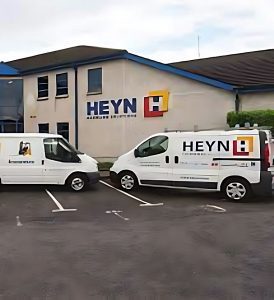As companies get larger, the jobs become more specialised. The person who used to do accounting and data entry now has someone to do data entry so can concentrate on accounting. The field worker who had to make on-the-spot decisions as well as carry out the jobs, is now a manager in charge of a team of specialised electricians, plumbers and whatever else is needed.
As the teams grow, you find that more decisions are being made back at headquarters based on findings made by the workers in the field, because there are too many workers to let them just decide for themselves and potentially get in each others way.
Example 1: availability-based job scheduling
As an example, let’s say you’re working on a job that involves doing plumbing and electrics. The team of diggers has finished up and the work area is ready for whoever’s next. Maybe the electricians are busy already? Or maybe the plumbers need to be somewhere in 5 hours so need to be first here?
With smaller teams, the managers might meet up and decide, taking time. With larger teams, you might have a site manager whose job is to make these decisions.
Why not just let FieldMotion decide? If you manage your jobs through our FSM (field service management software), then it already knows that the plumbers are due somewhere else, or that the electricians are busy. There is no need for a meeting between the managers. Using the FieldMotion Dynamic Scheduler, you can automatically order your jobs in such a way that everyone has time to do their jobs, with no clashes in schedule, no teams due on the other side of the country five minutes after finishing this one.
Example 2: decision-based job scheduling
Or let’s say that the job you’re doing involves making decisions based on the findings you make in the field. For example, let’s say your company does health-checks on house-bound people, and the decisions you make after these checks depend on what you find while doing your inspections.
You could hire a person and train them up to make qualified decisions on whether to bring in a doctor or optician. Or you could hire a person who just fills in forms and those forms are then read by a person who is trained to make the decisions. Obviously, it is more economical to train (and pay) 10 form-fillers and 1 decision-maker, than to train 10 field-based decision-makers.
But why are you paying for a decision-maker in the first place? If the decisions are based on simple rules (such as “how high is the blood pressure”, or “has the patient fallen recently”), then you don’t need a paid decision-maker for that. Just add the rules to the “on-complete” section of the form that’s filled out in the field worker software, and FieldMotion will make the decision automatically and book a doctor or optician for you immediately, and a recall visit will be created in a few weeks or months depending on the patient’s age or health.
If all decisions are based on simple rules, then you don’t need to train someone up to waste their time doing it – just let a computer do it for you, leaving you more time to go visit more patients.


